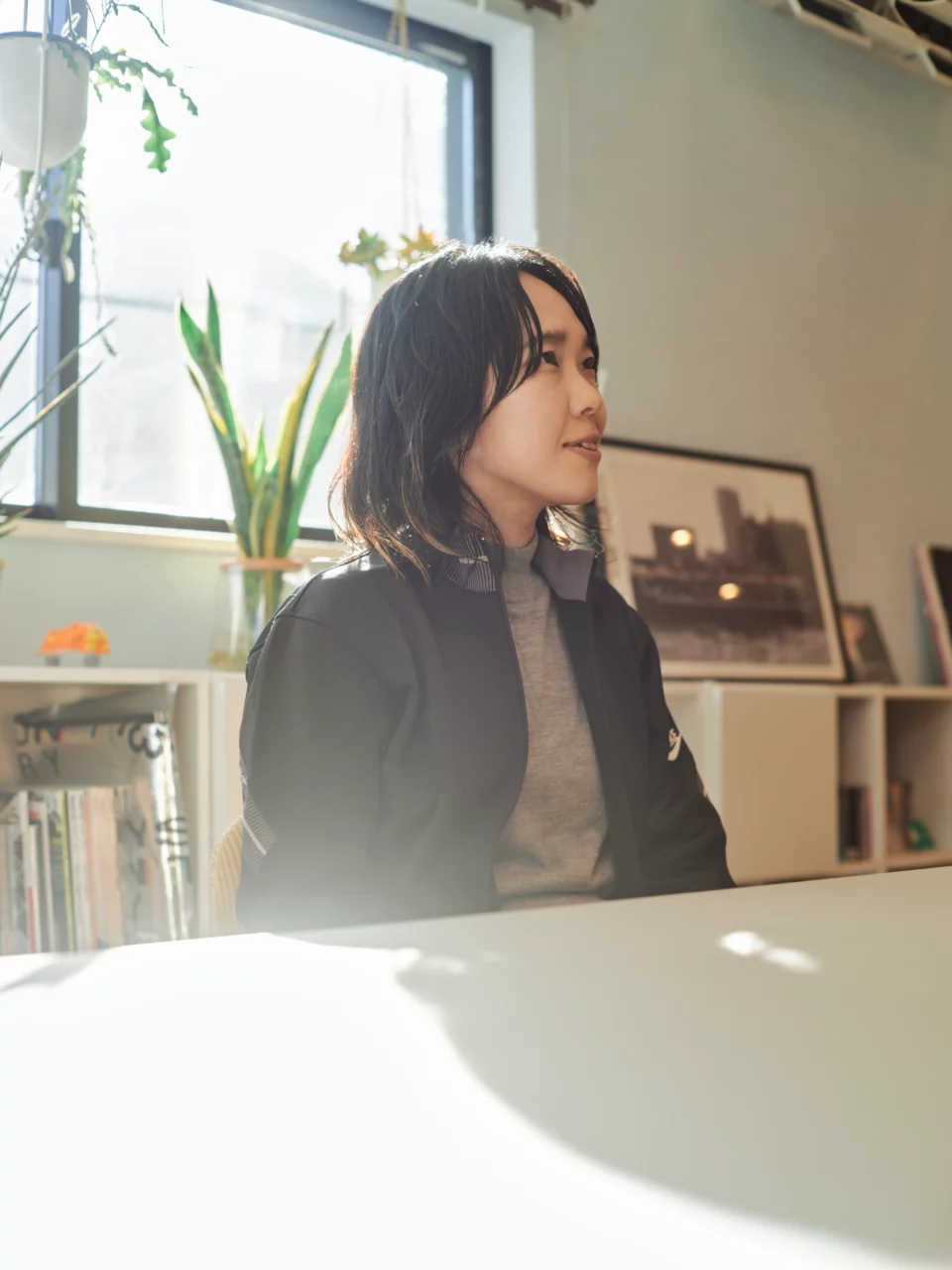INDEX
Striving for Timeless Music, Not Just the Typical
How did your first release, Sanbi (2019), come to be?
Oishi: I don’t really have songs that are purely fictional. My songs tend to come from things I’ve felt or thought about, and when those emotions or thoughts accumulate, I create music as a way to express them. For example, “Okoranai de ne” was written after the death of my pet dog. When something affects me, I can’t just leave it at that; I feel like I have to shape it into something, or I won’t be okay with just leaving it as it is. I feel like what I was thinking at that time is strongly reflected in that work.
Your 2022 release MyakKō is also based on the feelings and thoughts you had during the COVID-19 pandemic, right?
Oishi: I did have a feeling that I wanted to properly capture what I was feeling during that time in a song. However, even though there was more time during the pandemic, I didn’t feel the drive to just create a lot of songs. Maybe some people thought I should have been more urgent about it [laughs]. There were fewer releases and live performances, but I never really felt rushed. I figured there was no point in rushing, so I just decided to do what I could when I could.

Kashiwai (Editor): “Not rushing” is not as easy as it sounds, especially considering the restrictions you faced in your mid-20s during the pandemic. What do you think allowed you to avoid feeling rushed?
Oishi: Of course, I felt anxious. During that time, I couldn’t see my friends, and there was nothing enjoyable ahead of me, so I became filled with vague fears about the future and regrets about the past. I really fell into a slump. I remember watching people gather around the snack section in the supermarket during a holiday, and tears just started flowing… I even felt guilty for thinking, “Am I struggling?” But looking back now, I realize it was a pretty tough time.
That’s probably why I was consciously trying not to become too overwhelmed with anxiety. I felt like it was dangerous. I realized that if I wasn’t in a good place mentally, I wouldn’t be able to do music—or anything, really. I became more determined to restore balance. I decided not to rush, and first, I distanced myself a bit from those depressing feelings and wrote “Sanagi.” It’s a song about accepting the past, focusing on what can be done for the future, and the importance of creating something in the present.
The album MyakKō received significant reactions, including a special award at the APPLE VINEGAR -Music Award-, but looking back now, how do you feel about the work?
Oishi: I felt that it was more interesting if it didn’t end up being something that felt “typical.” I’m not very good at the process of saying, “Let’s make this track sound like this,” so I think I often ended up having more abstract discussions with the band members.
For me, there was an event that served as the starting point for the song, but I wanted the imagery to vary depending on the listener, and I hoped it would turn out that way during the creation process. As for the sound, I didn’t aim for something groundbreaking, but I did want to leave some space for ambiguity. I’m drawn to music that doesn’t feel outdated even after a few years, so when making the album, I wanted to create something that could be enjoyed by anyone, at any time, and by any listener. That was my goal.

As you mentioned, Kousuke Nakamura’s engineering played an important role. Did you communicate with him using abstract terms as well?
Oishi: Yes, exactly. While using specific reference tracks might make things easier in many situations, I find it more effective when I provide abstract requests and Nakamura-san plays me a few different sounds to help move things along. He always encourages me to explore more music, introducing me to songs I don’t know, which I truly appreciate.
To ask in an abstract way, what was the image of light that you had in mind for MyakKō?
Oishi: I wanted it to be something that holds significance for the individual in that moment. It’s the things you discover you love—maybe tomorrow you’ll feel differently, but if it’s something truly meaningful, even for just a brief moment, that’s enough.
And it doesn’t have to be something that resonates with everyone. I wanted to express something that was personal and special to me. I’d be happy if listeners could say, “Today, this particular sound in this track stands out to me,” or just enjoy it however they feel. The light I sought to express in MyakKō might be something along those lines.
MyakKō is a coined term, but I felt it had a vague, fleeting light-like quality to it. It doesn’t emit a strong message, but it still carries a certain presence.
Oishi: Yes, that’s right. I don’t think any of the songs have a glaring, clear-cut message. It’s more like, “This is how I feel, but what do you think?” It’s the kind of feeling where I leave something out there, and if it catches your attention, feel free to pick it up.

























